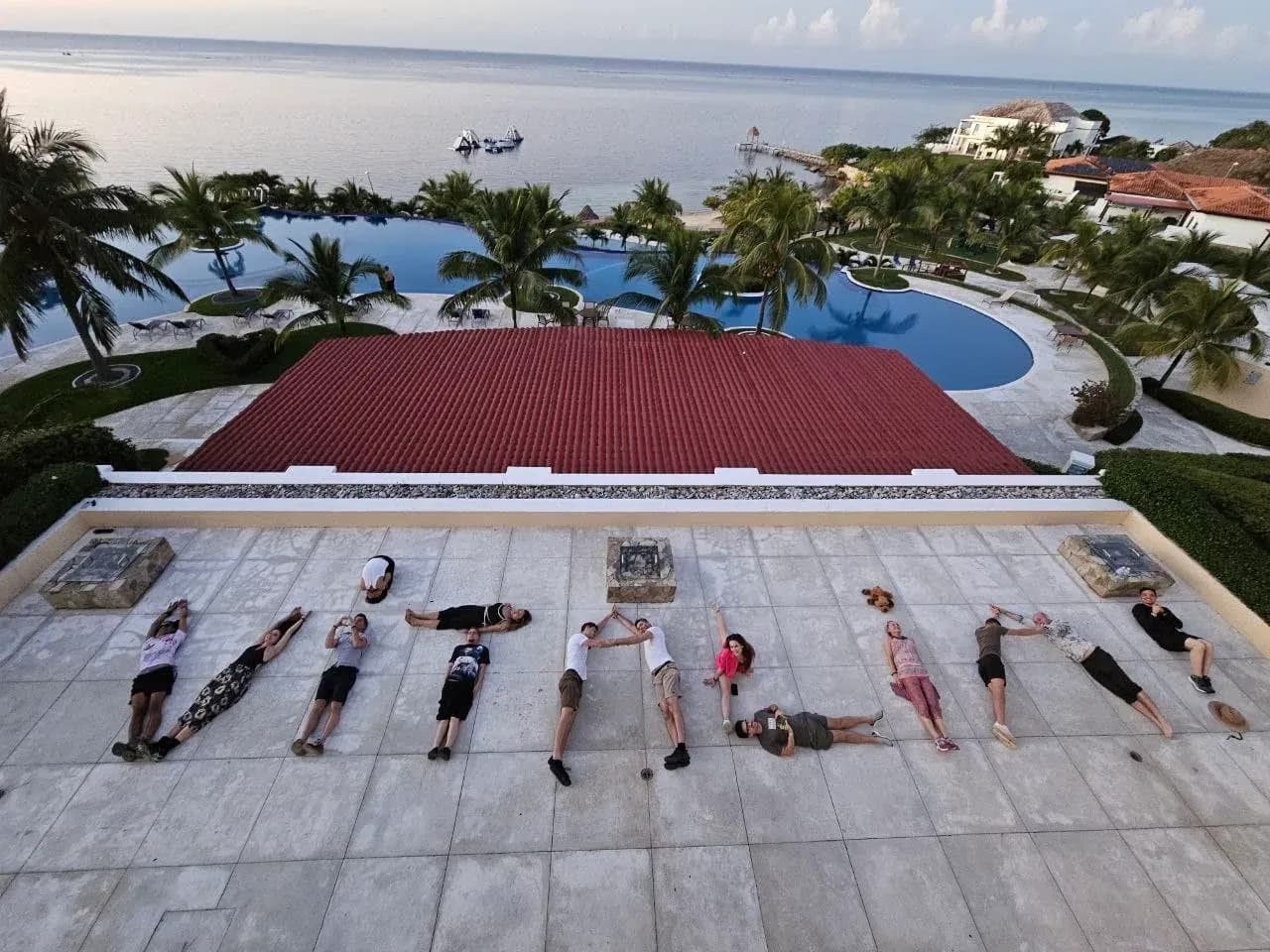
A Beginner’s Guide to Vitalia

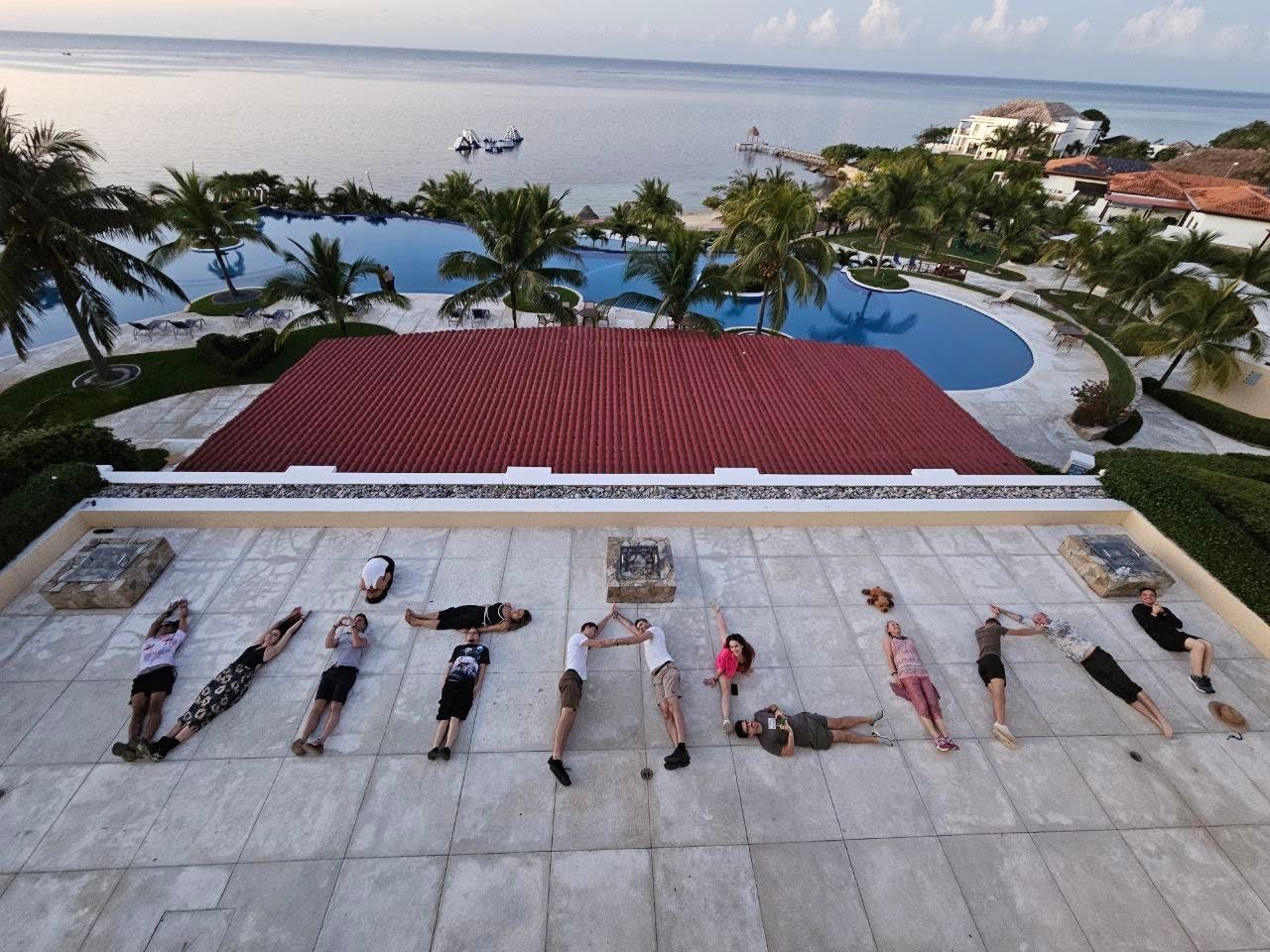
Vitalia builds a decentralised city for longevity biotech development, initiated by a 3-month pop-up city experience (open to short and long-term visitors, you can apply here)
Written by Morgan J. Weaver, published in collaboration between VitaDAO and Stranded Technologies.
The curious technophile ventures forth across the small and wondrous meatspace of a pop-up city-within-a-charter-city in Roatan, Honduras, chronicling the emergence of an experimental biotech startup hub, crypto-augmented Special Economic Zone, and nuclear reactor of liberal governance, big brains, and disruptive ideas¹.
Gazing out at a horizon so vividly turquoise that I begin to question whether my coffee has been trendily microdosed, it is easy to mistake this globally-renowned SCUBA destination and idyllic Caribbean getaway as a mere tourist haven. Postcard-perfect palms sway in a breeze that feels gentle as bathwater, laden with small coconuts which occasionally drop to Earth. Grass roofs top shallow fishing and diving docks, just as in too-perfect vacation stock photos. Small waves break against the world’s second-largest barrier reef, just a kilometer from shore--a penumbra of fantastical corals surrounding something possibly much stranger to us land-dwellers.
Framed in this vivid environment is a buzzing hub of ambitious STEAM activity, alive with provocative and audacious ideas, and an unquantifiable mass of intellectual horsepower and optimistic creativity. The air is laden with, What if? Legal engineers, doctors, biohackers, web3 developers, research scientists, psychologists, community builders and entrepreneurs in myriad verticals have convened in tropical Roatan’s Pristine Bay for a 2-month pop-up network city called Vitalia: The City of Life, with a theme that sounds surreal to many: Make Death Optional.
Why here and why now? Vitalia was chosen as a physical manifestation of what some might classify as a Network Society--a decentralized group cooperating and coordinating their energies around a set of unifying philosophies, which occasionally physically manifests-- permanently, temporarily, centrally or in a decentralized manner. The concept was popularized by Balaji Srinivasan, whose interactive and streamlined book on the concept, The Network State, may be read in its entirety, free of charge, here. This touchdown on Caribbean shores is no accident--Roatan is home to Próspera ZEDE (Zona de Empleo y Desarrollo Económico), a Honduran Special Economic Zone and charter city. Founded around 2021, Próspera is considered one of the most autonomous of existing Special Economic Zones, including Singapore, Hong Kong and Dubai. Próspera’s financial backers include Pronomos Capital, a fund led by Patri Friedman, the founder of the Seasteading Institute and backed by Peter Thiel, Naval Ravikant, Tim Ferriss and Marc Andreessen--well-recognized names and veterans of startup societies and early investing. However, these names make up only a small fraction of investment into Próspera and their role has been overstated by the media. Most of Próspera investors are not as well-known, include only a few institutional VCs, and invest in the space out of conviction--a bet on a different future which they believe should exist. Próspera’s success seemed too early cypherpunk, not ready even for the most forward-looking VCs. Given its continual and steady development over the course of recent years, this may soon change.
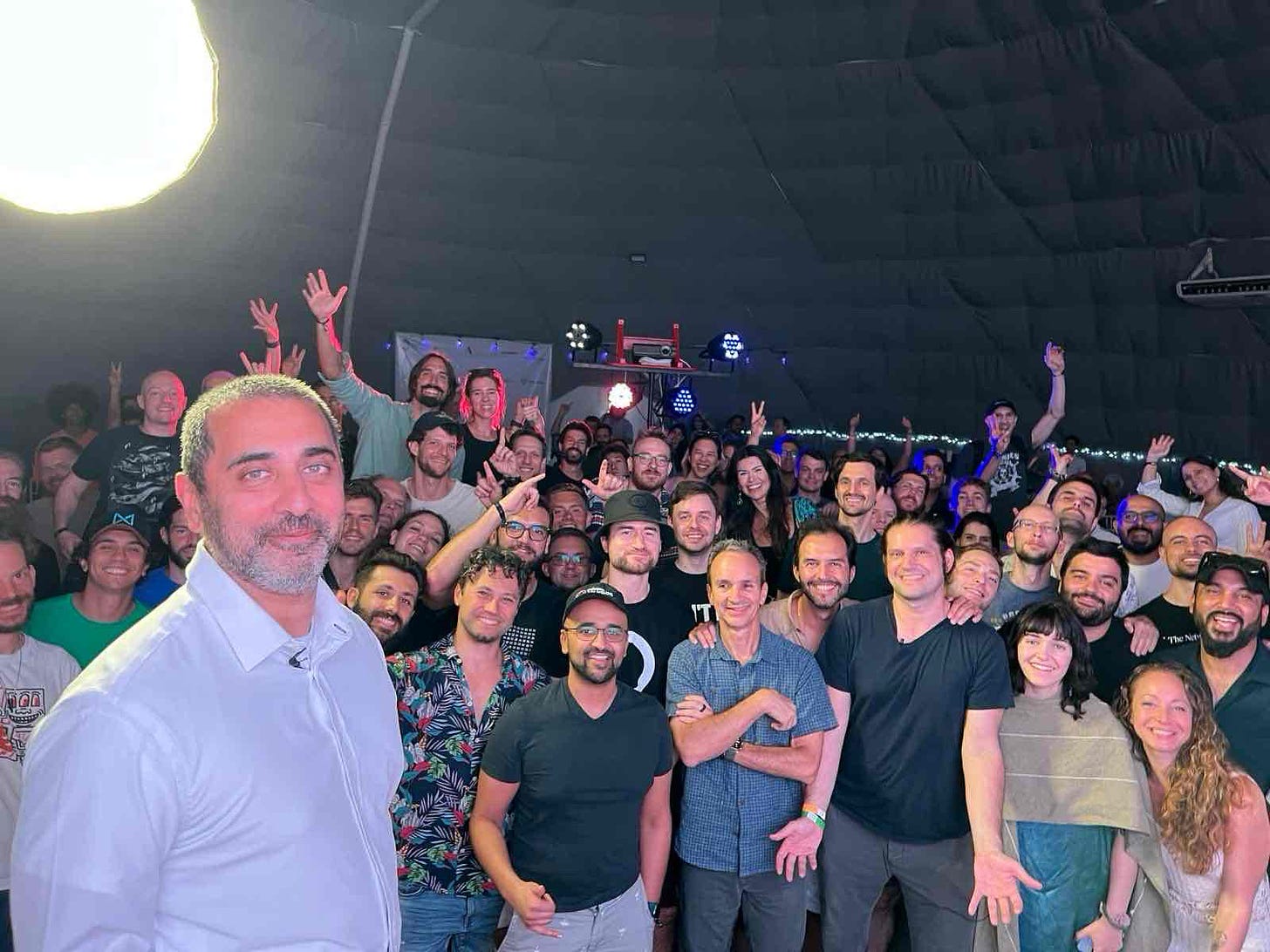
The concept of Próspera is uncomplicated: streamlined legal code and liberal governance, paired with the goal of economic prosperity through entrepreneurship and rapid development encouraged by low business taxes, will empower residents, citizens and businesses, and allow Próspera’s government to cover its own operating costs, unlike many existing governments. In addition to fresh legal and policy approaches, financial technologies such as cryptocurrency are part of this plan to empower residents, citizens, and businesses. For example, Próspera hosts AmityAge - a Bitcoin Education Center that has onboarded roughly 60 businesses on the island to accept Bitcoin payments. Próspera also offers cryptocurrency as legal tender, and accepts payments from multiple blockchains including Ethereum and Solana. Businesses can be incorporated here (e.g. LLCs) quickly and efficiently. And since law may be copied, one can, for instance, set up a Delaware-style corporation, or copy and iterate on a variety of other legal structures that have proven successful in the past. Businesses in the ZEDE are free to transact in crypto without securities laws, and they are allowed to tokenize their assets and require no capital gains tax. The ZEDE itself has investment protection under both national law and international treaties, granting investors, entrepreneurs and residents the stability to build and invest with a long time horizon.
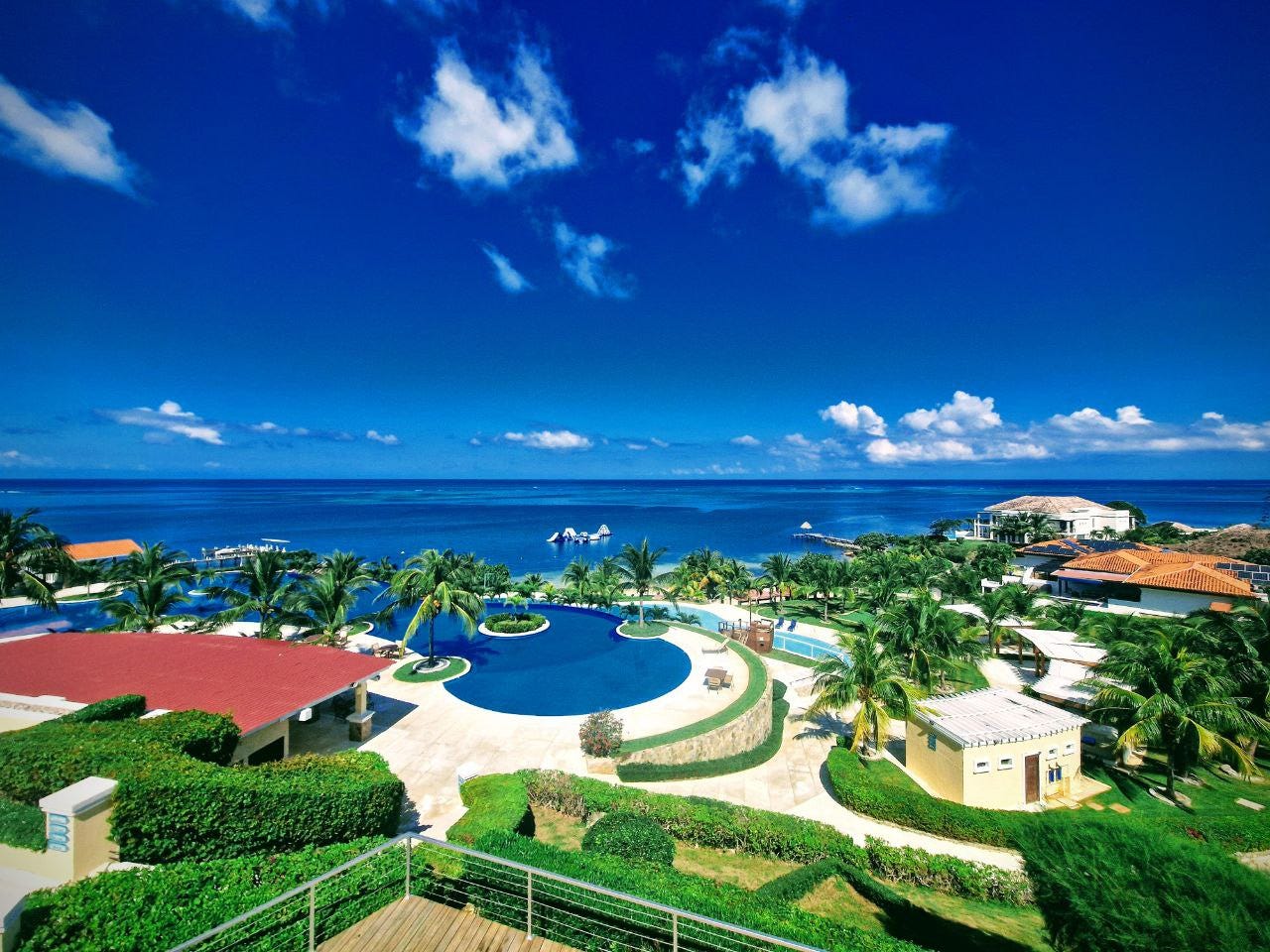
Las Verandas resort, the main campus upon which Vitalia is held.
Próspera’s jurisdiction includes several parcels of land including Pristine Bay, consisting of loosely themed neighborhoods including the Beta District. The Beta District harbors Duna, a 14-story residential tower currently under construction, and Las Verandas, a luxury golf resort including larger villas and condominiums for year-round living, plus a small piece of land on which GARM Clinic, a medical tourism destination offering cutting-edge longevity treatments, sits. Próspera ZEDE’s jurisdiction also encompasses a mainland Honduran shipping port (Satuye, in Las Ceiba) where port workers and their families are expected to live, facilitating shipments back and forth and by extension speeding along the significant construction that is needed to build this charter city.
Before delving into Vitalia, we’d be remiss to ignore VitaDAO, a closely involved organization that sits at several intersections including longevity biotech, web3, culture, startup incubation, and funding mechanism innovation. For non-web3 readers, I direct you to a quick introduction to the Decentralized Autonomous Organization (DAO), a web3 concept consisting of a collective of participants, working under some common goal, that coordinates decision-making and resources through code in a permanent ledger--a blockchain. VitaDAO’s bottom line is to slow, stop, and even reverse aging, which includes the extension of healthspan as well as lifespan.
You may be wondering at this point why aging is a target--not cancer or osteoporosis or metabolic syndrome, or even addiction. Aging is VitaDAO’s target because of the 150,000 human deaths per day on planet Earth, roughly 100,000 are caused by aging itself, which includes age-related disease that is a direct result of the aging process³. Let us sit with this for a moment: aging is more deadly than any disease, group of diseases, or cause of death including accidents, addiction, war, starvation, or infection. If aging itself were viewed as a primary disease, two-thirds of these deaths could be prevented if a cure were reached. And if the aging process could be reversed, delayed, or otherwise mitigated, we could look forward to living a greater number of healthy, productive years--years spent with our families, partners and communities, years learning, pursuing growth and picking up meaningful longer-term projects. The potential of the human species and civilization as a whole, unfettered by mortality, is incalculable. At this point we can direct critical and inquiring readers to VitaDAO’s Longevity Briefing Primer for a more detailed overview of this goal, its supporting philosophy and mechanisms.
What’s more, in industrialized nations, up to 90% of deaths per year are related to aging and age-related disease³. Perhaps most provocative of VitaDAO’s founding vision is the idea that aging is a disease, and that we should make death optional by understanding and eliminating this disease. This idea creates friction in the US regulatory system, as the FDA currently neither recognizes nor legitimizes the development of therapies aimed at the enhancement of currently healthy people, as opposed to the treatment of disease or disability. The FDA does not currently recognize aging as a disease.
So if aging is a target, what is the shape of the organization that aims to prevent it? VitaDAO is composed of scientists, researchers, web3 and web2 professionals, academics, dealmakers, venture capital, and others collectively pushing decentralized science forward in the arena of longevity and enhancement biotech, complemented by web3 technologies, to solve some of the most persistent problems of traditional science. Examples of problems VitaDAO is working to solve include the high cost of Big Pharma-style clinical trials, averaging $2.3 billion per therapy² according to Deloitte, and the regulatory bottlenecks of conducting clinical research. Other persistent issues of traditional science in academia and institutions, or “tradsci”, include the gatekeeping and misaligned incentives of academic publishing, patient data privacy and sovereignty, and access to and compensation for dataset usage. This is all backed by a belief that the current biomedical research apparatus is failing to deliver treatments and progress in a timely manner, and the data-backed observation that Big Pharma has stagnated for years, failing to bring treatments to market for sick and dying people. While approved pharmaceutical drugs occasionally do unknown harm, as opposed to known side effects, deaths from the lack of therapies that weren’t approved sooner, or were mired in regulatory complications kill far more people than those who die from approved drugs. According to Zina Sarif of Yendou, a melanoma research foundation, 10,000 cancer deaths per year could be prevented by existing drugs stuck in long trials.
Here in Pristine Bay we witness the tinder of an enabling legal platform combined with the spark of innovative biotech and other industries, agitating for faster, cheaper, more efficient regulatory processes. And Vitalia, a gust of oxygen funneling in a migration of scientists, researchers, technologists, and entrepreneurs for the pop-up city and its numerous mini-conferences, with aims to convert some of these to permanent residency. Part of this thrust consists of four conferences: two on Longevity Biotech bookending the event, the second on Crypto Cities & Startup Societies, and the third conference on AI & Tech Progress.
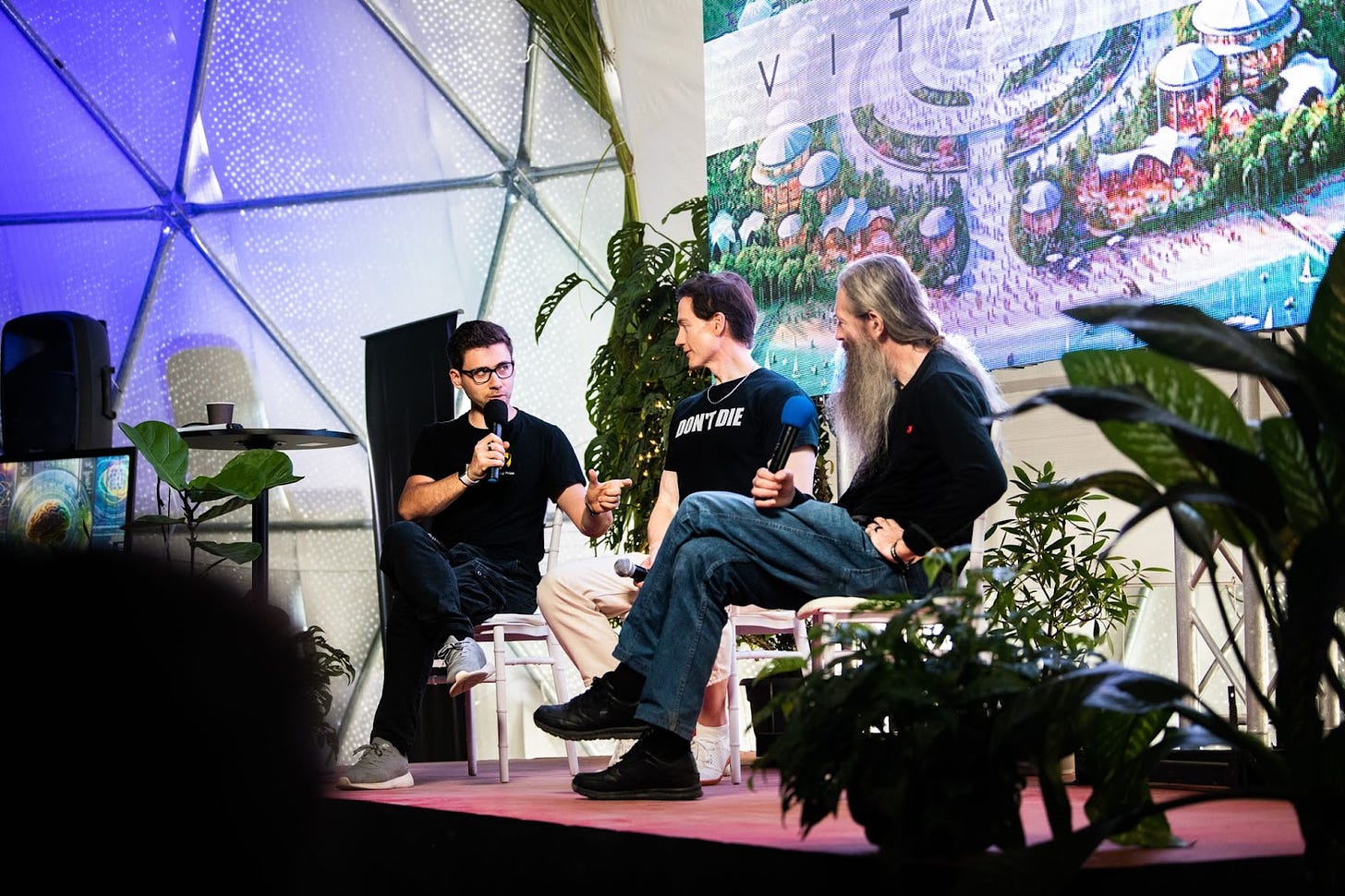
Aubrey de Grey and Bryan Johnson in a fireside chat with Vitalia co-initiator and VitaDAO steward Laurence Ion.
The first of these 3-day weekend conferences, Longevity Biotech Part I, featured notable speakers and serious contributors to the fields of longevity, rejuvenation biotech, geriatrics and gerontology, such as Aubrey de Grey, José Cordeiro, and billionaire biohacker and elven-skinned longevity advocate Bryan Johnson. I sat in on two days of lectures. Surprisingly, there was not a huge emphasis on lifestyle interventions--considering that so far, even a rigorous regimen of sleep, healthy diet, social wellness, and stress management can only get us so far, with the most genetically blessed of us, lifestyle unknown, living to about 116 or so. An increased healthspan augmented by lifestyle, so the common thread went, will allow us to access the next available rejuvenation technologies as they arrive, until a final innovation to stop aging is found. Cryonics, or whole body or brain preservation by special freezing techniques, are currently considered a great Plan B amongst many longevity experts and researchers.
Talks during the first Longevity Biotech conference focused on dozens of potential biotechnologies for rejuvenation and making death optional. Rather than wishful thinking about juice cleanses or sleep protocols prolonging life far past anything we’ve seen so far (which lifestyle advocates admit won’t take us to immortality), talks focused on bone marrow rejuvenation, cohesive theories of aging such as mitochondrial dysregulation and biological clocks located in individual bodily cells as well as specific clusters of cells in the brain, and even the occasional homebrew science project, such as an introduction to the art of running an electrical current through muscle tissue (monkeys and scientists) to express target molecules, such as ebola antibodies, based on injected mRNA.
The second conference, Crypto Cities & Startup Societies, spanned the weekend of February 2-4. In the spare weekend between conferences, Vitalians explored the island’s bays, reefs, eateries, and other local gems. A bonfire with ecstatic dancing was thrown on the beach in front of the Pool Club, a sprawling, multi-story building on Las Verandas and the de facto center of gravity of the event that houses coworking, an aerial silks space, a gym, meeting rooms, cold plunge and sauna, a salon, and a biohacking lab. Other weekend entertainments included locally grown cacao, freediving certification, local art, Lionfish spearfishing, Palmetto Bay and its brewery, and local Howler monkeys. An all-ages, Vitalian DJ’d party at Roatan Yacht Club with dancing, open laptops containing glucose data charts, and intense philosophical conversations about consciousness and the nature of work unfolded.
What separates Vitalia from a Web2-style conference, or even a Web3 conference (some of which exude a distinct festival energy), is both tangible and not. Many of the organizers involved also had a hand in attending or organizing Zuzalu and Zuconnect, two legendary Web3 events that concentrated the best and brightest--intelligent, creative, weird and open-minded dreamers with diverse backgrounds, mostly united by their agency and idealism. These events were founded by Vitalik Buterin, founder of Ethereum, and you can read more about his reason for creating these genre-defining events here. Part of Vitalia’s unique culture is its do-it-yourself approach to organizing--anyone can organize workshops, events, activities, and groups. Hackathons spur infrastructure development and experimentation to support the Vitalia and Zuzalu-adjacent community itself with open-source, tailor-made event tooling such as ZK-gated forums, ticketing, and scheduling software. Attention to the whole person is also something that separates this event from a typical Web3 conference--wellness activities abound--from holotropic breathwork to men’s and women’s groups, to circling and authentic relating, to meditation and pilates and yoga and improv. Artists and psychologists and podcasters and scientists rub shoulders with hackers and VC investors. The Zuzalu formula, the Zuclear reactor, is alive and well at Vitalia. It feels less like a tech conference and more like a summer camp for gifted adults, where conversations flow freely and cross-pollination of ideas is abundant.
Vitalia isn’t just high-caliber brains, but heart as well. International community-builders work with New Governance experts to engineer a culture and a city that will stick--something that will have staying power and encourage people to plant their flags, start families, and build in a technological, regulatory and ideological frontier nestled in the tropics, given a shot at changing the world by investors, innovators, and the Honduran government.
- Tribute to Neil Stephenson’s 1996 Wired gem, Mother Board, Mother Earth, on the intro.
- Cost of pharmaceutical asset development: https://www.genengnews.com/gen-edge/the-unbearable-cost-of-drug-development-deloitte-report-shows-15-jump-in-rd-to-2-3-billion/
- Age-related mortality statistics: https://en.wikipedia.org/wiki/Aging-associated_diseases#:~:text=Of%20the%20roughly%20150%2C000%20people,is%20higher%2C%20reaching%2090%25.
- Honduran criminal law applies in the ZEDE--things that were already illegal in Honduras, such as abortion and illegal drugs including psychedelics, are also illegal in the ZEDE.


